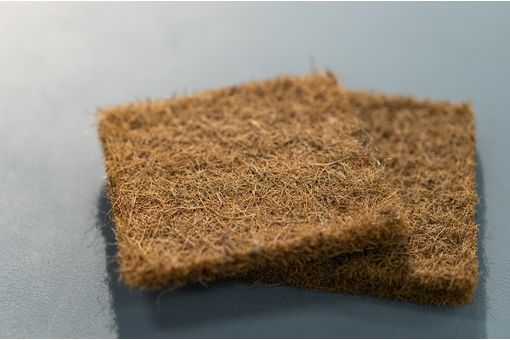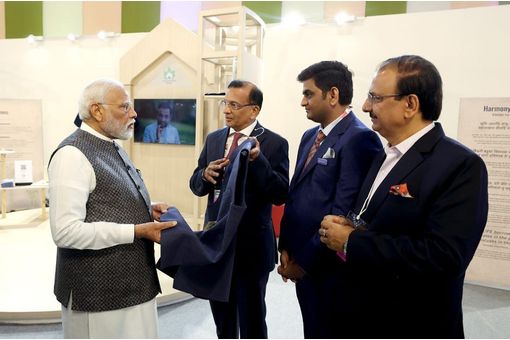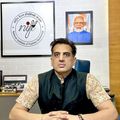Royal Golden Eagle to invest $200 mn in fibre research

The investment will focus on alternative cellulose feedstock and clean manufacturing solutions deployable at industrial scale. The target allocation for investment is 70:20:10 in three areas respectively: scaling up proven clean technology in fibre manufacturing, bringing pilot scale production to commercial scale, and R&D in emerging frontier solutions.
"This is a strategic business growth area for RGE. Our integrated portfolio of companies across pulp, fibre and yarn production puts us in a unique upstream position in the textile value chain to realise commercial scale and affordable solutions that support downstream manufacturers and brands. We aspire not just to be the largest viscose producer but also to be a leader in sustainable textile fibre production through innovation," said Bey Soo Khiang, vice chairman of RGE.
Through its business groups Sateri in China and Asia Pacific Rayon (APR) in Indonesia, Singapore-based RGE is the world's largest viscose producer with a total annual production capacity at 1.4 million tonnes. Sateri and APR source wood-based dissolving pulp from sustainably managed renewable plantations in Indonesia and Brazil through RGE-managed companies, April and Bracell.
"Sateri is proud to be part of this long-term commitment that RGE has made. We look forward to supporting and scaling up solutions that can help Sateri produce even more sustainably and deliver high quality and affordable products to our customers," said Allen Zhang, president of Sateri.
"This commitment responds to two pressing environmental challenges facing the textile industry: increase in demand for both synthetic and natural fibres for textile production and increase in textile waste. Recycled textile waste as a feedstock tackles both issues simultaneously," said Ben Poon, deputy head of APR.
Through partnerships with innovators and in-house research and development, several initiatives are already underway. In August 2019, RGE invested in Finnish start-up Infinited Fiber Company (IFC) to scale up its technology. A 500-ton pre-commercial plant in Finland and customer training centre will be ready by early 2020.
"Infinited Fiber technology fits perfectly in RGE's shift for using alternative feedstocks. Our ability to use a diverse range of feedstock, especially mixed textile fibres, is a technological breakthrough, and as RGE's strategic partner we look forward to support their change," said Petri Alava, CEO of IFC.
In May this year, an MoU was signed with Re:newcell for technical cooperation and trials on production of viscose using recycled cotton, with the aim of industrial scale production by 2025.
"We are very happy about adding Sateri, a world-leading fibre producer, to our group of validation partners for scaling up circular raw materials for fashion. Cooperation between many actors in the value chain is crucial to achieve significant positive impact in this industry," said Patrik Lundström, CEO at Re:newcell.
RGE has also commenced partnership discussions with Fashion for Good, whose Innovation Platform is, at the core of its efforts, focused on sparking and scaling technologies and business models that have the greatest potential to transform the fashion industry.
"As the world's largest viscose producer, RGE is uniquely positioned to implement and scale our innovator's solutions across its global portfolio. There is a huge opportunity to innovate in the area of next-generation fibre solutions. The potential for change is enormous," said Katrin Ley, managing director, Fashion for Good.
In addition, RGE's in-house R&D teams conduct research on alternative cellulosic feedstock, such as agricultural waste and recycled cotton, as well as closed-loop manufacturing for viscose production, in collaboration with leading universities and global R&D centres.
"Next-generation solutions have real potential to make a significant contribution to the realisation of a circular economy for fashion and the broader textile sector. We hear far and wide that people want 'systems change, not climate change'. Allocating investment to accelerate the scaling of solutions into the mainstream is an important lever to pull for systems change. We need more such commitments of investment to help today's niche sustainability innovators become the number one partners of choice," said Sally Uren, chief executive of Forum for the Future.
Fibre2Fashion News Desk (PC)
































-Ltd..jpg?tr=w-120,h-60,c-at_max,cm-pad_resize,bg-ffffff)





.jpg?tr=w-120,h-60,c-at_max,cm-pad_resize,bg-ffffff)
.jpg?tr=w-120,h-60,c-at_max,cm-pad_resize,bg-ffffff)






